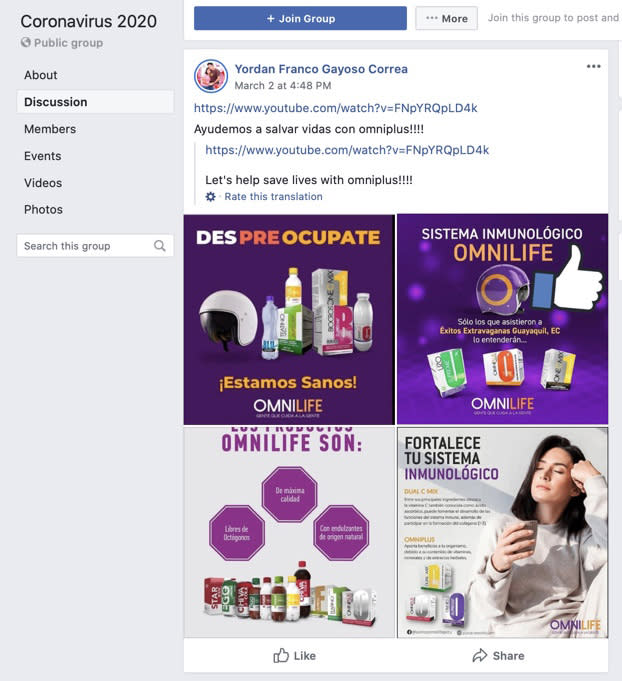Coronavirus scams targeting worried Canadians

The coronavirus is the “ripped from the headlines” angle scammers are using to take advantage of the increased fears surrounding the virus, in order to solicit money and personal information from people. Criminals are using various platforms, including email and social media, in attempt to defraud victims. Here is a roundup of what to look out for from scams related to COVID-19.
Phishing scams
The World Health Organization issued a warning recently about fraudulent and malicious emails claiming to be from the organization in an attempt to steal money or sensitive information. The email will request the person give sensitive information, such as usernames or passwords, and will request them click on a malicious link and attachment. If the links are clicked, scammers are able to install malware or steal sensitive information.
The WHO stresses they will:
Never ask you to log in to view safety information
Never send attachments via email that you didn’t ask for
Never ask you to visit a link outside of www.who.int
Never charge money to apply for a job, register for a conference, or reserve a hotel
Never conduct lotteries or offer prizes, grants, certificates or funding through email
Never ask you to donate directly to emergency response plans or funding appeals
The WHO also outlines other details to look out for if you believe you’re being targeted by a cybercriminal who appears to be from the organization. You can report a suspected scam directly on the WHO website.
Social media posts
Be weary of posts on social media sites like Twitter and Facebook, related to the coronavirus. The posts sometimes appear to promote tips on preventing the disease and include fake information about cases in your area. They may also solicit users for donations for victims, or emergency response plans. If you come across solicitations for donations, be sure to do your research first and verify it’s a credible charity or crowdfunding site. Avoiding clicking on links that don’t appear to be from reputable sources.
Fake products
To date, there is no vaccine to protect against COVID-19, so any product claiming to do so is a scam. Avoid clicking on ads that purport to have prevention, treatment or cures for the virus.

Amazon recently banned more than 1 million items from its site, which falsely claimed to cure or protect against the coronavirus. They’ve also taken to task tens of thousands of merchants that have tried to price gouge customers on products like face masks and hand sanitizers. A search for “coronavirus” on the site now brings up survival manuals, as well as vitamin C immune boosters. There have been unfounded claims that taking the vitamin helps prevent infection of COVID-19.

